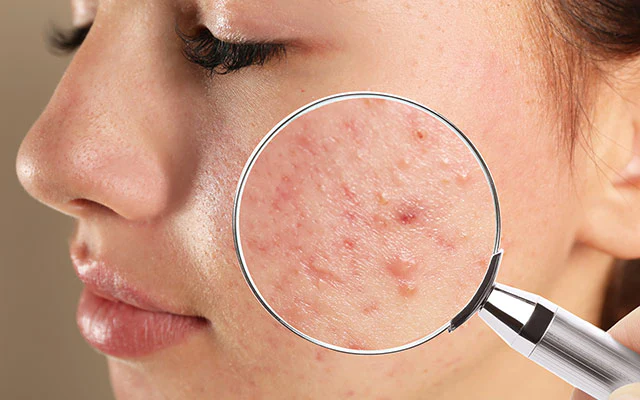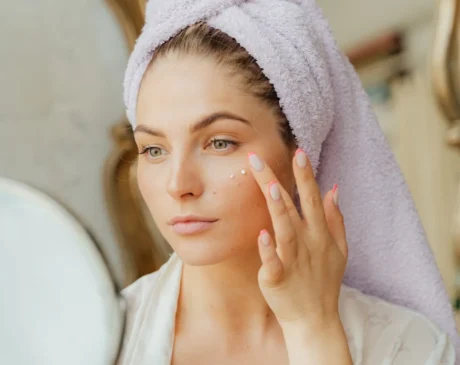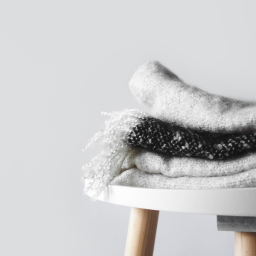16 Dos and don’ts for oily, acne-prone skin

Achieving a clear, radiant complexion can be a reality, even if you have oily, acne-prone skin. The key lies in a well-structured skincare routine that incorporates the right steps while avoiding common mistakes, such as over cleansing or using too many products at once. In this comprehensive guide, I’ll delve into the dos and don’ts of skincare for oily, acne-prone skin. Learning about so many of these dos and don’ts myself absolutely transformed my skin and has helped cure my hormonal cystic acne.
The Dos:
1. Do Begin with a Gentle Cleanser:
Start your routine with a mild, fragrance-free cleanser. This step eliminates excess sebum and debris, creating a clean canvas for subsequent products. This CeraVe cleanser is my absolute favorite and it never irritates my skin.
2. Do Opt for Non-Comedogenic Products:
Prioritize products labeled as non-comedogenic. These won’t clog your pores, reducing the likelihood of breakouts and blackheads. A lot of makeup products you may be using right now might not be non-comedogenic, so make sure to check! Here is a list of some amazing non-comedogenic foundations.
3. Do Embrace Exfoliation:
Incorporate exfoliation into your routine 2-3 times weekly. Chemical exfoliants with salicylic acid or glycolic acid can help unclog pores and promote cell turnover.
4. Do Use Soothing Toners:
Choose an alcohol-free toner containing calming ingredients like witch hazel, aloe vera, or heartleaf to balance oil production and help reduce pores. This Anua Heartleaf 77% Soothing Toner is my absolute favorite, and it’s the best-selling toner in Korea. Heartleaf is especially known for its anti-inflammatory and anti-bacterial properties, which makes it ideal for sensitive, acne-prone skin.
5. Do Incorporate Retinol:
Introduce retinol into your routine gradually. Retinol helps increase cell turnover, which in turn helps remove dirt and oil from your pores and improve overall skin texture. Start with a low concentration and consult a dermatologist if needed. Once your skin has adjusted well to over-the-counter retinol, it could be beneficial to transition to tretinoin (prescription only), which is more potent than retinol and is shown to provide faster results for fighting acne.
6. Do Prioritize Hydration:
Use an oil-free moisturizer with hyaluronic acid to hydrate without greasiness. It might sound counterintuitive at first to keep oily skin well-hydrated, but well-hydrated skin is actually less likely to overproduce oil.
7. Do Use Sunscreen:
Always apply a broad-spectrum sunscreen with SPF 30 or higher. Sun protection prevents post-acne marks from darkening and also protects your skin from aging as quickly. Sunscreen is undoubtedly the best anti-aging product you can use for your skin. Some high SPF sunscreens that are great for oily skin are these by Supergoop and Elta MD.
8. Do Practice Consistency:
This is incredibly important! Stick to your routine diligently. Find joy in creating a consistent skincare routine that you do every morning and night. It’s a beautiful form of self-care. Results may take time, but consistent care is the key to achieving healthy, clear skin.
The Don’ts:
1. Don’t Over-Cleanse:
Resist the urge to over-cleanse, as this can strip your skin of essential oils, triggering increased oil production. Stick to cleansing just twice a day–once in the morning and once at night.
2. Don’t Use Harsh Physical Scrubs:
Avoid abrasive scrubs as they can irritate and worsen acne. Opt for chemical exfoliants instead. The 2% BHA Liquid Exfoliant by Paula’s Choice is my holy grail. It really helps unclog pores and smoothen skin tone without causing redness or irritation.
3. Don’t Skip Moisturization:
Even oily skin needs hydration. Skipping moisturizer can lead to increased oil production as the skin compensates for dryness. This is a comprehensive list of great moisturizers for oily, acne-prone skin.
4. Don’t Forget to Use Clean Towels
It’s best to have towels dedicated to drying your face, and you want to wash or replace them every 2-3 uses if possible. After drying your face, towels absorb water or dirt and become breeding grounds for bacteria. Even though we like to think that our face is 100% after we wash it, that is not always the case. Another drying method that also works, if you have the patience for it, is air drying. Overall, being mindful of how you are drying your face can make a huge difference in improving your acne.
5. Don’t Experiment with Too Many Products At Once:
Introducing multiple new products at once can overwhelm your skin. Gradually incorporate new items to gauge their effects. Even after incorporating a set of new products into your routine, avoid using too many products simultaneously, such using a liquid exfoliant, retinol, and benzoyl peroxide treatment in one night. Often times, products with different active ingredients do not mix well together and can cause irritation. This article by InStyle explains more in depth. Just remember that a general rule of thumb with skincare is that less is more.
6. Don’t Forget to Wash Your Pillowcases:
Regularly wash your pillowcases to prevent the accumulation of dirt, oil, and bacteria. Fresh pillowcases can help maintain clear skin. Silk pillowcases are especially great for acne-prone or sensitive skin since they tend to absorb less moisture and dirt and tend to be more gentle on the skin overall.
7. Don’t Neglect a Healthy Diet:
Your skin’s health is influenced by what you consume. Overall, you want to opt for a balanced diet rich in fruits, vegetables, and water. However, you may even want to experiment and see what kinds of foods might irritate your skin. Some people breakout when they eat gluten, dairy, or anything spicy, but that might not be the case for everyone. Test and see what diet works best for you and your skin!
8. Don’t Stress Out:
It sounds easier said than done, but studies show that stress can upset one’s hormonal balance, leading to worse breakouts. Incorporate stress-relief techniques like meditation and exercise into your routine. Sometimes just a simple walk outside or even a few hours away from technology can really help.
I know the frustration and pain that comes with acne, but just know you are not alone. Clear, glowing skin is within reach, even if you’re battling oily, acne-prone skin. By sticking to these dos and avoiding the don’ts, you can create a robust skincare regimen that paves the way for healthier, more radiant skin. All of this may seem overwhelming, but you just need to start with one step at a time. Remember, consistency is key, and a little patience can go a long way in your journey towards cleare





